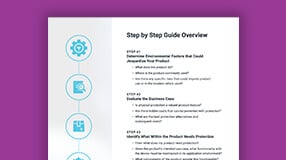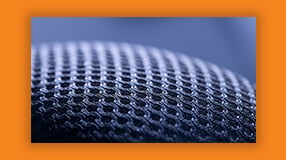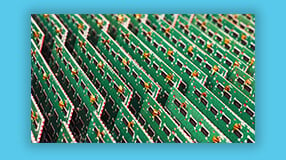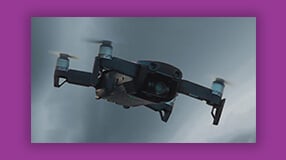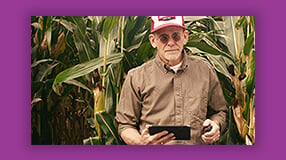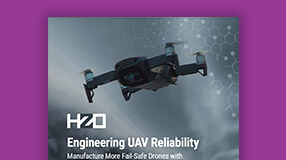Solving Weather & Water Challenges For Smart Farms

It’s a Small World, After All
The world’s population is projected to reach 8.5 billion by 2030, an unprecedented increase approaching fast. This looming surge will compound our current problem – more mouths to feed on a densely packed planet that isn’t growing any larger.
Even as available agricultural land shrinks and natural resources become more depleted, farmers must produce 70% more food by 2050.
Necessity is the mother of invention, especially when it comes to farming. After all, if the agricultural industry doesn’t adapt, we don’t eat. The task at hand for farmers is to produce more food with more precision while working with less.
IoT in Smart Farming: Connecting Dots
To adjust to these changes, the industry has introduced technology to agriculture, a practice known as smart farming. Intelligent devices collect and process information about emerging issues and environmental changes, enabling farmers to respond more quickly. Pulling this system together is the Internet of Things, connecting smart machines and integrated sensors to produce data-driven, data-enabled processes.
Information about the fertility of the soil, crop growth, weather conditions, and other variables can be used to track business status, equipment efficiency, and employee performance, offering valuable insights that can be used to optimize agricultural performance. As a result, work, waste, and risk are reduced, while cost management and capabilities are enhanced.
Hardware Security Implications in Smart Agriculture Pose Problems
While agricultural devices hold promise, no matter how smart the software may be, the success of the smart farming system is contingent upon how physically secure the hardware is. This is problematic for several reasons:
- Without adequate protection, sensors can easily be damaged by wear and tear caused by constant exposure to drops, falls, heavy winds, or pounding rain.
- Typical weather conditions, such as high temperatures, pollutants, condensation, and humidity, can cause immediate failure by a short circuit or a long, unpredictable shutdown due to corrosion.
- To operate reliably, farm managers need to access information consistently. A single sensor failure could lead to a catastrophic period of downtime at worst. At best, failing devices create the need for continuous maintenance and replacement.

Protecting Smart Farming Equipment Has Never Been This Important
The onus falls on the agricultural industry to achieve more precision and a higher level of performance as it struggles to meet the demands of our population. To farmers, physically robust hardware is more important than ever.
Weather stations located across fields offer insight into climate conditions, the optimal choice of crops, and potential actions that, when taken, could improve farming capacity. Meanwhile, sensors attached to cattle are helping farmers understand changes in health and activity levels for each animal and, collectively, the status of the entire herd.
Crop management devices produce data about crop health, precipitation, and temperature fluctuations, allowing farmers to mitigate risk and increase yield proactively. This kind of cognizance is gleaned from smart farming sensors, provided these devices can predictably perform in an unpredictable environment.
Overcoming Challenges to Device Security In Smart Farming with Parylene Thin-Film Coatings
Considered a “best-in-class” conformal coating in electronic, industrial, medical, and engineering industries, Parylene is a thin-film electronic protection solution that can address agricultural challenges. Applied with a vacuum deposition technique, Parylene coatings achieve dependable coverage free from imperfections like cracks or voids. The coating uniformly conforms to device topography, completely penetrating spaces as narrow as <0.01 mm.
Additionally, Parylene has good heat endurance. For example, Parylene C can offer durable environmental protection for ten years at 80°C. Providing mission-critical protection at thicknesses on the micron level, Parylene can endure temperatures and weather conditions that traditionally have been hurdles for smart farming devices.
If you have been tasked with designing or manufacturing smart farming devices that the industry can depend on, Parylene is an excellent way to achieve critical reliability. Please contact us today if you’d like to learn more about our Parylene solution.
Conformal Coating for Drones - Which is Best?
How to Make Your Lithium-ion Battery Design More Sustainable
Don't Be Left in the Dark: Brief History of Light Emission Devices
Mallory is a veteran writer with over a decade of writing experience and has spent over five years at HZO learning about coating technology from the best minds in the industry. Professionally, Mallory is especially interested in the process of problem-solving and watching how the engineering team develops solutions that ensure business requirements are met. Over her years at HZO, Mallory's writing has been cited in industry whitepapers, including "Parabolic Model for Optimum Dry Film Thickness (DFT) of Corrosion Protective Coatings" and "Universal Approach to Integrating Reduced Graphene Oxide into Polymer Electronics." All of Mallory’s blogs are reviewed for accuracy before publication.
Additional Resources

Learn More About the Benefits of Protective Consumer Electronics Coatings

Learn About the Benefits of Protective Automotive Coatings
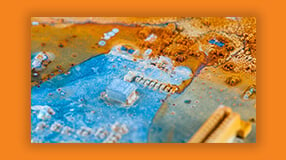
Learn About the Benefits of Protective Industrial Coatings

Learn About the Benefits of Protective Medical Device Coatings
